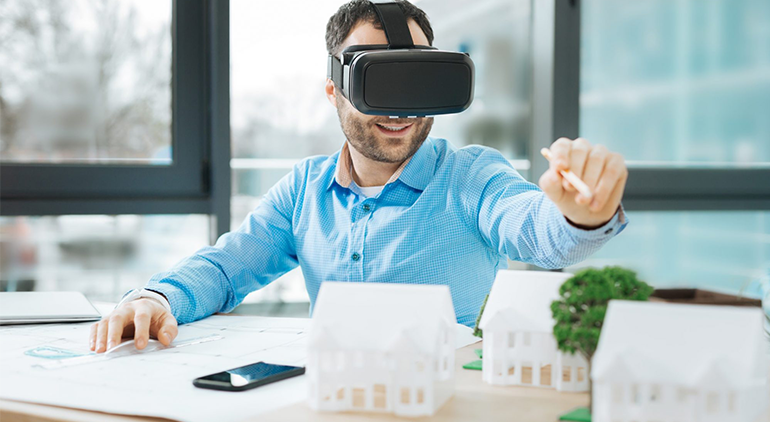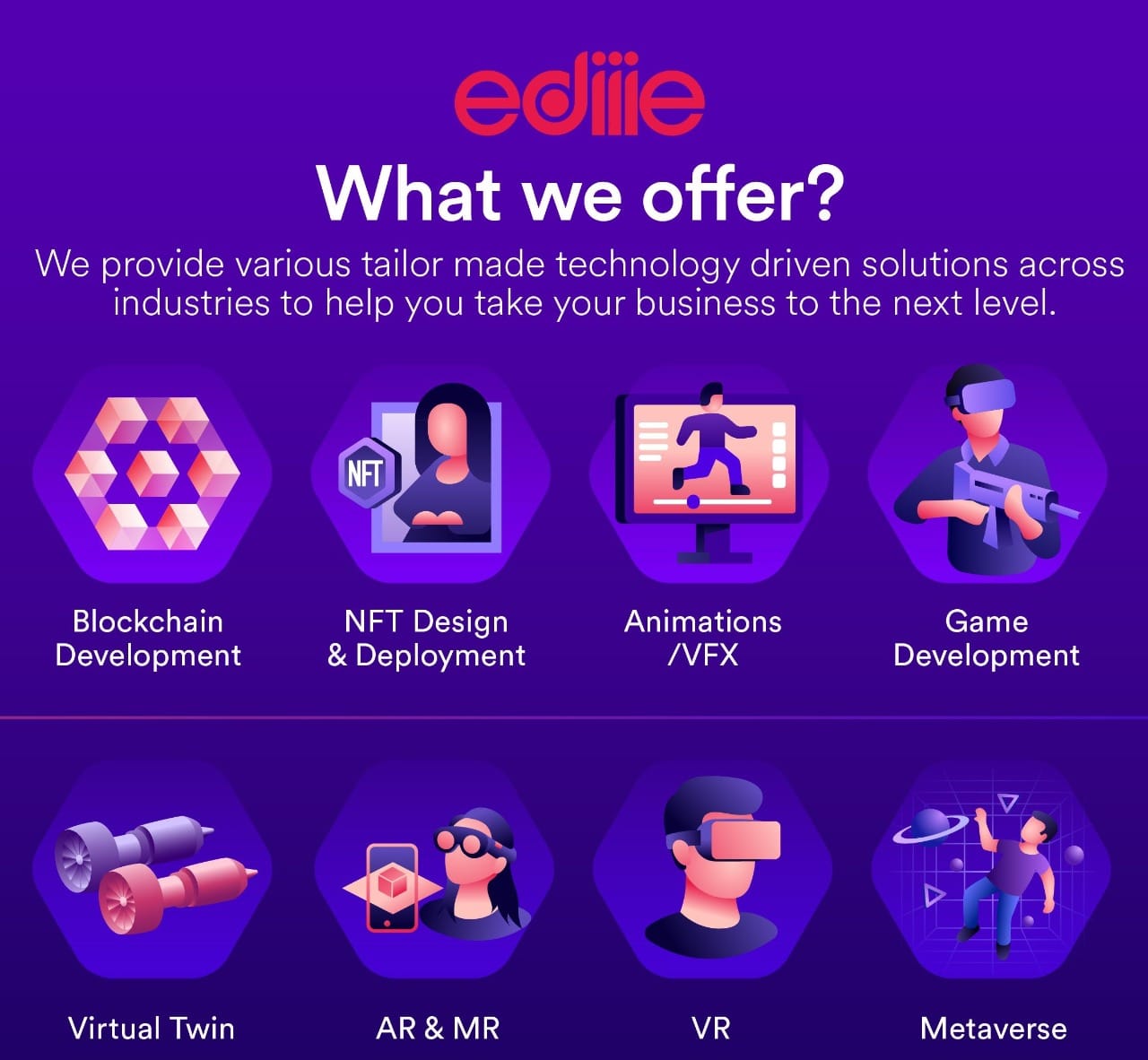Real Estate in the Metaverse Explained: Building Dreams Virtually
The Metaverse is best described as an amalgamation of virtual and emerging technologies. It blurs the existence of barriers between the physical world and the digital and provides a landscape of seemingly limitless possibilities.
But wait, isn’t real estate all about locations, verifiability, and long-lasting assets? You’d be correct there because Metaverse real estate aims to recreate it inside the digital realm with all the essential qualities.
As it stands today, the Metaverse has come a long way from the hypothesized and imaginative versions – from the pages of Stephenson’s novel, as some may remember.
It has already seen some great moments in recent years, as many have entered this uncharted territory, seeking to explore the place for creative and economic opportunities. So read on to know how the Metaverse real estate merges the concept of ownership with the intangible in immersive new ways.
Future of Real Estate in the Metaverse

Many tech leaders and enthusiasts have dubbed the Metaverse as the next leap in how the internet evolves that it will consist of an immersive and virtual world that sees the use of VR and other extended realities in bringing the experience alive for its users.
The content on the platform will be ‘real’ and have as much of an effect on other actions and rules inside the Metaverse as tangible objects do in the real world. And this will translate into a variety of opportunities for users and players looking to invest in the future of the Metaverse real estate. Such as:
✔️ Education
The expansive spaces of the Metaverse could serve as an extension to traditional routes of education. It can host spaces and numerous users involved in the educational processes of varying levels.
Metaverse real estate will provide spaces like schools and institutes, recreational zones, and more which will make education a driving force in this virtual space. With opportunities for educators and creators to provide engaging educational experiences through various means.
✔️ Entertainment
Aside from education, the Metaverse is also a prime spot for hosting immersive entertainment events and activities such as gaming. It would exist as a virtual world that will parallelly host events like concerts and sports activities, etc., that will be indistinguishable from the real world.
Relying on Metaverse real estate will enable producers and others involved typically in real-world entertainment events to recreate much of the activities in which they participate. All the way from promotional content to billboards for advertising, hosting the venue and setting the stage for entertainment events.
✔️ Business
During the pandemic, many companies opened up to the possibility of employees working from their homes and it was enabled to a large extent by online conferencing software and platforms.
Now that the pandemic is over, the convenience and underlying benefits of remote work established by business owners and their employees still remain.
Owing to Metaverse real estate, this is another possibility that has become a key moment in the virtual world – Where people are exploring the functions and advantages of having virtual offices, showrooms, and other types of business spaces.
This poses a serious advantage to real estate investors and key players who want to capitalize on the market of remote workers and offices while providing all the advantages of the Metaverse for enterprises.
Overall, these are some examples of the kind of opportunities that real estate investors will see once they join the Metaverse and the more it evolves. Depending on the trends and challenges, it’ll be helpful to leverage the services of a Metaverse development company.
As quite a few companies are already investing in this space: With the Metaverse real estate market predicted to cross $15 billion by 2030, going by the annual growth rate.
Digital Real Estate: Key Trends and Challenges in the Metaverse

The Metaverse, with its features and capabilities, is rightly described as a disruptive technology in the tech space. Though it is still in what can only be described as its ‘formative stages,’ there are already some pretty major companies that have shown a keen interest in developing the Metaverse – along with exploring what Metaverse real estate will entail.
For example, Decentraland and The Sandbox are examples of popular platforms that enable users to buy, sell, and also build new properties on virtual tracts of land. Similarly, you have Roblox, Axie Infinity, and Somnium Space involved in digital real estate.
Key Trends shaping the Metaverse Virtual Real Estate:
✔️ Rise of Extended Reality Products
Extended reality products such as VR and MR headsets, AR solutions and their programs have become far more accessible today, than what they used to be.
As the tech gets cheaper, more and more people have become capable of experiencing these products – which is ideal for people looking to experience the immersive and virtual nature of the Metaverse real estate. And important for how VR is used in real estate.
✔️ Development of Blockchain Technology
Blockchain is an important part of the Metaverse if it is supposed to be decentralized and platforms opting for Metaverse services are increasingly opting for this. This is because blockchain adds a layer of security and interoperability to any Metaverse real estate project.
And keeps the platforms future-proof, free of any single entity controlling the economic activities in any virtual space.
✔️ Popularity of NFTs
With the introduction of blockchain technology for Metaverse real estate development, the popularity of NFTs is also a key trend. As NFTs will be used to tie and sell tokenized parcels of land in the Metaverse among other assets.
And it is essential that more users are open to using and adopting these NFTs as an integral part of any platform’s economy and to establish ownership in the virtual space.
Challenges Affecting the Real Estate Metaverse

✔️ Hardware
Owing to the technology available to today’s average users, there’s a real possibility that it will take a while before the computing power of people’s systems will catch up.
This also extends to how accessible VR and MR headsets still are, as of today, in terms of price and people’s willingness to adopt. As such, the need for improved hardware is holding people back from experiencing the Metaverse with high fidelity and immersive visuals.
Along with the accessibility to AR VR in the real estate industry.
✔️ Connectivity
Aside from improved hardware for graphical fidelity, any Metaverse real estate platform will generally also require its users to have high-speed internet. This will become true the more the project expands, and more places or properties are added to the platform.
Without fast internet speeds, issues such as buffer and lag will be too problematic for users to have a smooth and seamless experience.
✔️ Single Standard
Presently, there is no single standard that applies to the Metaverse, spanning across all projects and platforms. This means, that different projects have different designs, internal systems and economies, etc. – making the experience wide and varied for the average user.
As such, no platform or company can operate in the Metaverse beyond the specific goal of the project. And this will also apply to projects overseeing the Metaverse real estate.
Scaling the Digital Skyline with the Virtual Real Estate Metaverse

That's all there is to it. These are some of the significant trends and obstacles confronting individuals attempting to enter the Metaverse with virtual reality assets and real estate.
The trends are promising, as the Metaverse will address the demand for virtual experiences of millions of users globally. And despite the challenges, real estate will likely become a significant part of the Metaverse, especially as the technologies improve and the landscape becomes more transparent for everyone involved in developing it.
As we wrap up this exploration, one thing is abundantly clear regarding digital real estate: The Metaverse is not just the future but the frontier where that future is being developed today. It offers a vivid canvas for people to realize and build their dreams virtually – One our virtual reality development company has helped shape.
Checkout our expertise in the Metaverse design and development in this showreel video:
Contact us at EDIIIE to get started with your journey through the Metaverse and seize your digital legacy today!
.jpg)





